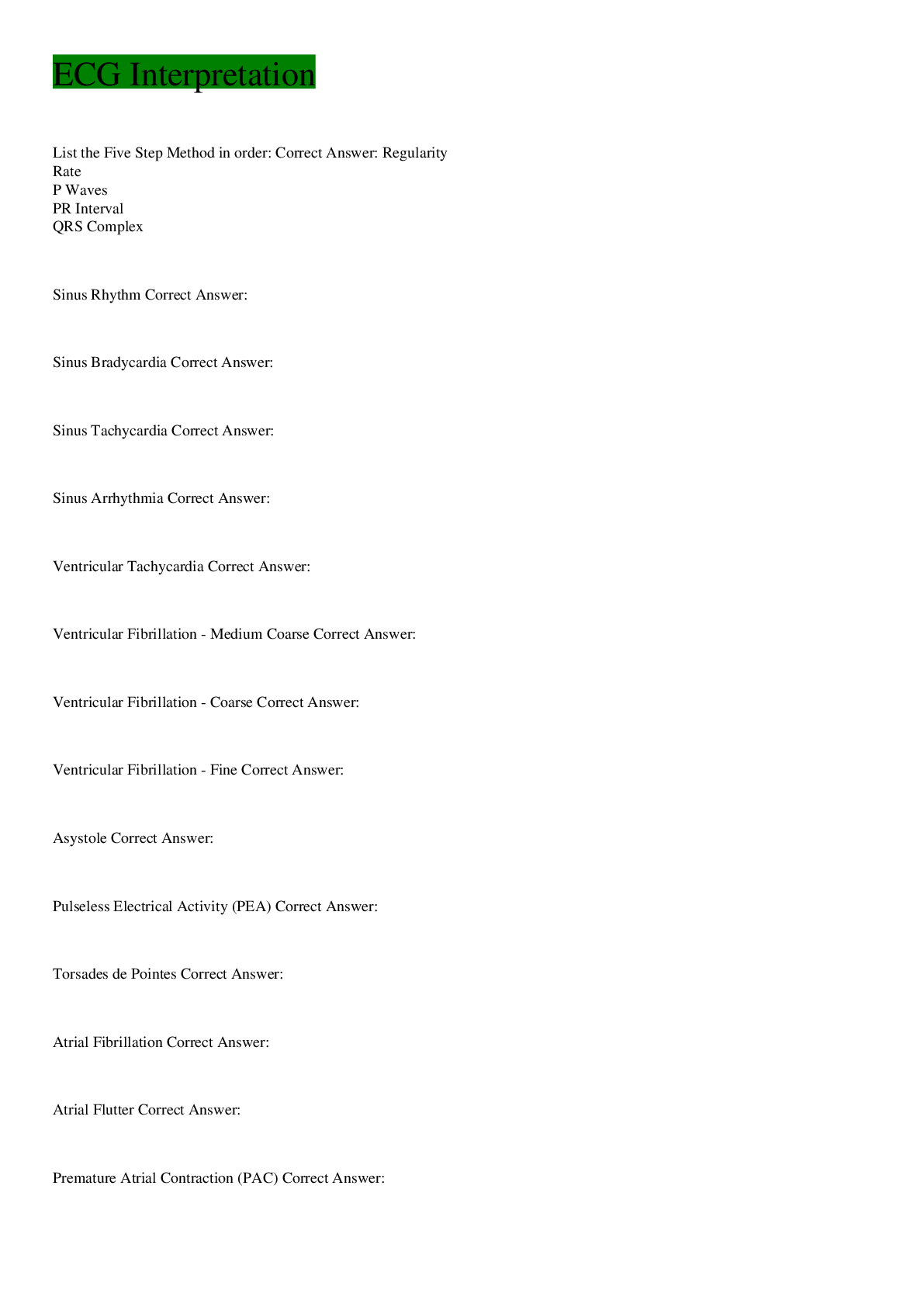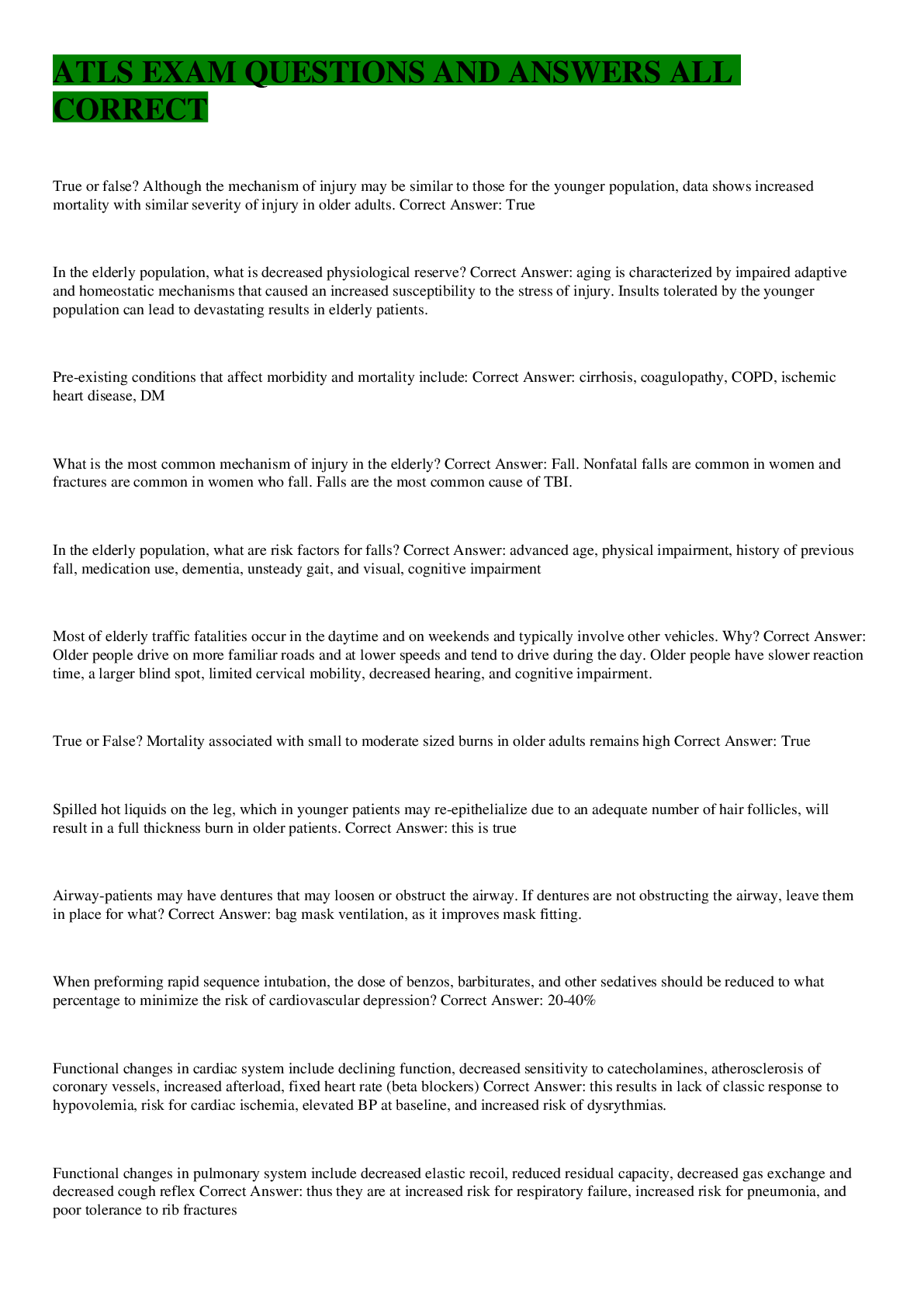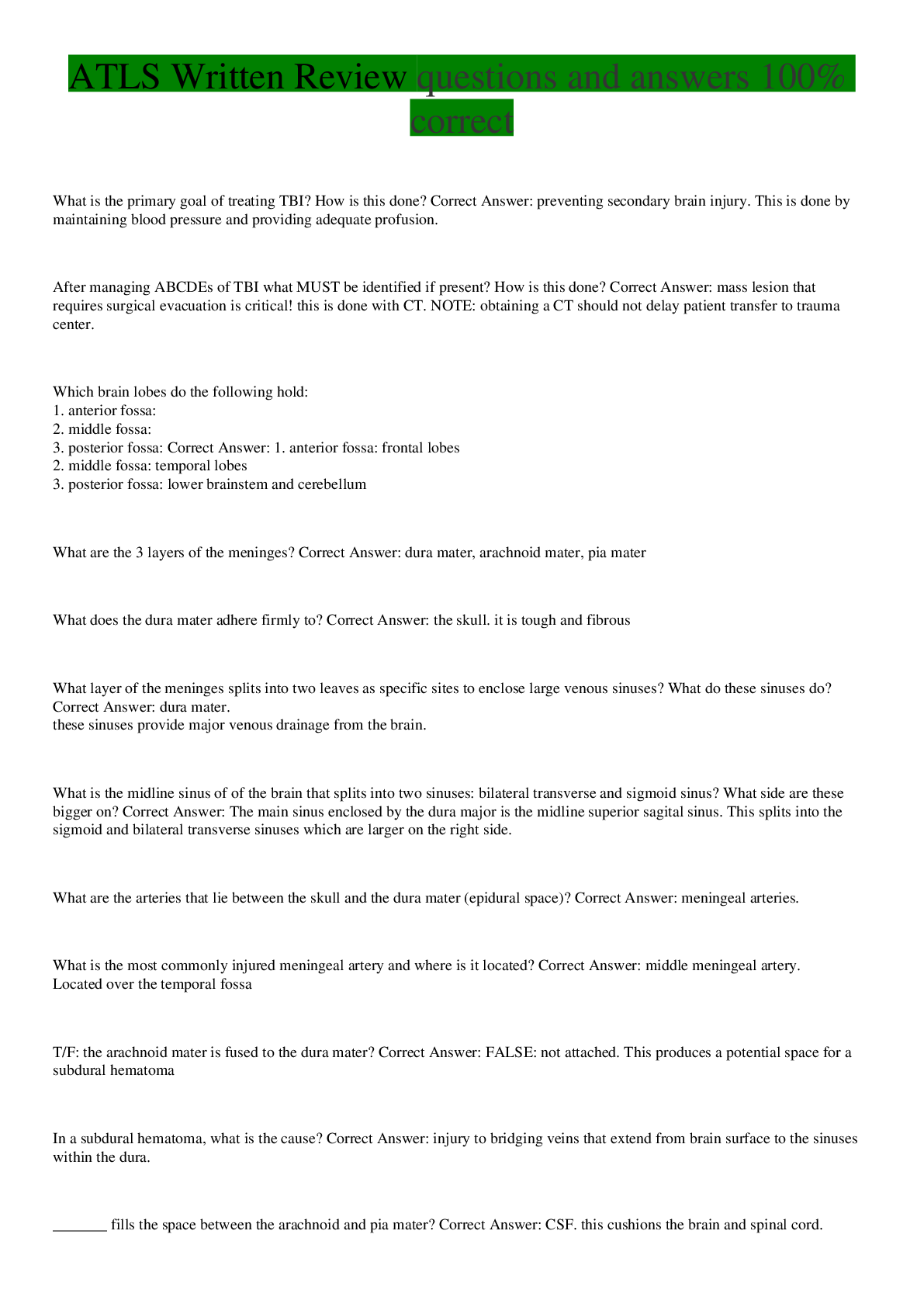Health Care > EXAM > ACUTE KIDNEY INJURY NOTES QUESTIONS AND ANSWERS (All)
ACUTE KIDNEY INJURY NOTES QUESTIONS AND ANSWERS
Document Content and Description Below
CONCEPT FLUIDS AND ELECTROLYTES Exemplar Acute Kidney Injury ACUTE KIDNEY INJURY NOTES QUESTIONS AND ANSWERS Learning Outcomes • Describe the pathophysiology, etiology, clinical manifestation... s, and direct and indirect causes of acute kidney injury (AKI). • Identify risk factors associated with AKI. • Utilize the nursing process in providing competent nursing care to the patient with AKI. • Identify therapies used in the collaborative care of individuals with AKI. Questions Review the antecedents of fluid and electrolytes, and answer the following questions: • What role do the kidneys play in the regulation of F&E? • Based on the role the kidneys play in maintaining fluid and electrolyte balance, what would you anticipate happening if these roles became disrupted? • What are the basic components of the kidney, and what role do they have in maintaining renal function? • What would your priority nursing assessments be for a patient with F&E imbalances related to the kidneys not functioning properly? 4 AKI from slight deterioration to severe impairment erized by rapid deterioration of kidney function asCreatinine, BUN, K+ without reduced urine output pment of azotemia Pathophysiology and Etiology of Acute Kidney Failure (AKI) https://www.youtube.com/watch?v=bwwQd7xkHNc • The causes and pathophysiology of ARF are commonly categorized as prerenal, intrarenal, and postrenal. • Prerenal AKI results from conditions affecting renal blood flow and perfusion. • Intrarenal AKI is characterized acute damage to the renal parenchyma and nephrons. • Postrenal AKI are classified as obstructive causes. Any condition preventing urine excretion can lead to postrenal AKI. Facts about Acute Kidney Failure (AKI) • AKI occurs in approximately one fifth of older adults and may comprise up to 10% of all older adults admitted to acute care settings. • AKI is seen in 2-3% of children cared for in pediatric intensive care units, and up to 8% of infants in neonatal intensive care units. • Potential causes in children and neonates include hemolytic uremic syndrome, acute glomerulonephritis, sepsis, poisoning, hypovolemia, obstructive uropathy, and complication of cardiac surgery, hematologic-oncologic complications, bone marrow transplantation, and respiratory failure. • Children who recover from AKI may have residual kidney damage. RIFLE Classification for Acute Kidney Injury Class GFR Criteria Urinary Output Criteria •R (Risk) Increased serum creatinine 1.5 X 0.5 mL/kg/h for 6 h baseline, OR GFR decreased ≥ 25% •I (Injury) Increased serum creatinine 2 X 0.5 mL/kg/h for 12 h baseline, OR GFR decreased ≥ 50% •F (Failure) Increased serum creatinine 3 X <0.3 mL/kg/h for 24 OR baseline, OR GFR decreased ≥ 75%, OR Anuria for 12 h Serum creatinine ≥ 354 mmol/L with acute rise of at least 44 mmol/L •L (Loss) Persistent acute renal failure = complete loss of kidney function >4 weeks •E (ESKD) ESKD >3 months Pathophysiology of AKI Prerenal Failure • Prerenal Failure – most common – Results from conditions that affect renal perfusion: Hypovolemia • Hemorrhage • Dehydration • Loss from GI tract • Burns • Wounds Low Cardiac Output • Heart failure • Cardiogenic shock Altered Vascular Resistance • Sepsis • Anaphylaxis • Vasoactive medications Pathophysiology of AKI Intrarenal Failure • Intrinsic/intrarenal Failure – Caused by kidney disease Glomerular/microvascular • Glomerulonephritis • Disseminated intravascular coagulation (DIC) • Vasculitis • Hypertension • Toxemia of pregnancy • Hemolytic uremic syndrome Acute Tubular Necrosis (ATN)- primary cause is prolonged ischemia • Ischemia associated with prerenal ARF • Toxins : nephrotoxic drugs, heavy metals, hemolysis (RBC destruction), rhabdomyolysis Interstitial Nephritis • Acute pyelonephritis • Toxins • Metabolic imbalances • Idiopathic Pathophysiology of ARF Postrenal Failure •Postrenal Failure – Obstructive causes of AKI Ureteral Obstruction • Renal Calculi • Cancer • External compression Urethral Obstruction • Prostatic enlargement • Calculi • Cancer • Stricture • Blood clot Risk Factors for AKI • Major trauma or surgery • Infection • Hemorrhage • Severe heart failure • Severe liver disease • Nephrotoxic agents (drugs and radiologic contrast media) • Lower urinary tract obstruction • Age • Child with renal insufficiency 13 Acute Tubular Necrosis » Prevents normal kidney function » Causes – Ischemic – Toxic (Nephrotoxic) » Risk to kidneys high – High blood flow – High O2 requirements – Reabsorption and excretion of metabolites 14 Oliguric Phase Not all AKI has oliguric (low urine output) phase Depends on pathology & cause Pre-renal typically has oliguria, while post-renal has anuria, and intra-renal is non-oliguric The longer the oliguria, the worse the prognosis Onset varies: If cause is ischemic, onset is within 24 hours If cause is nephrotoxic, oliguria develops much later Diuretic Phase High urine output, inability to concentrate urine Initially 1 to 3L/day but as high as 5L/day Nephrons not fully functional High urea concentration causes osmotic diuresis Kidneys can excrete wastes but cannot concentrate urine [Show More]
Last updated: 1 year ago
Preview 1 out of 28 pages
Instant download
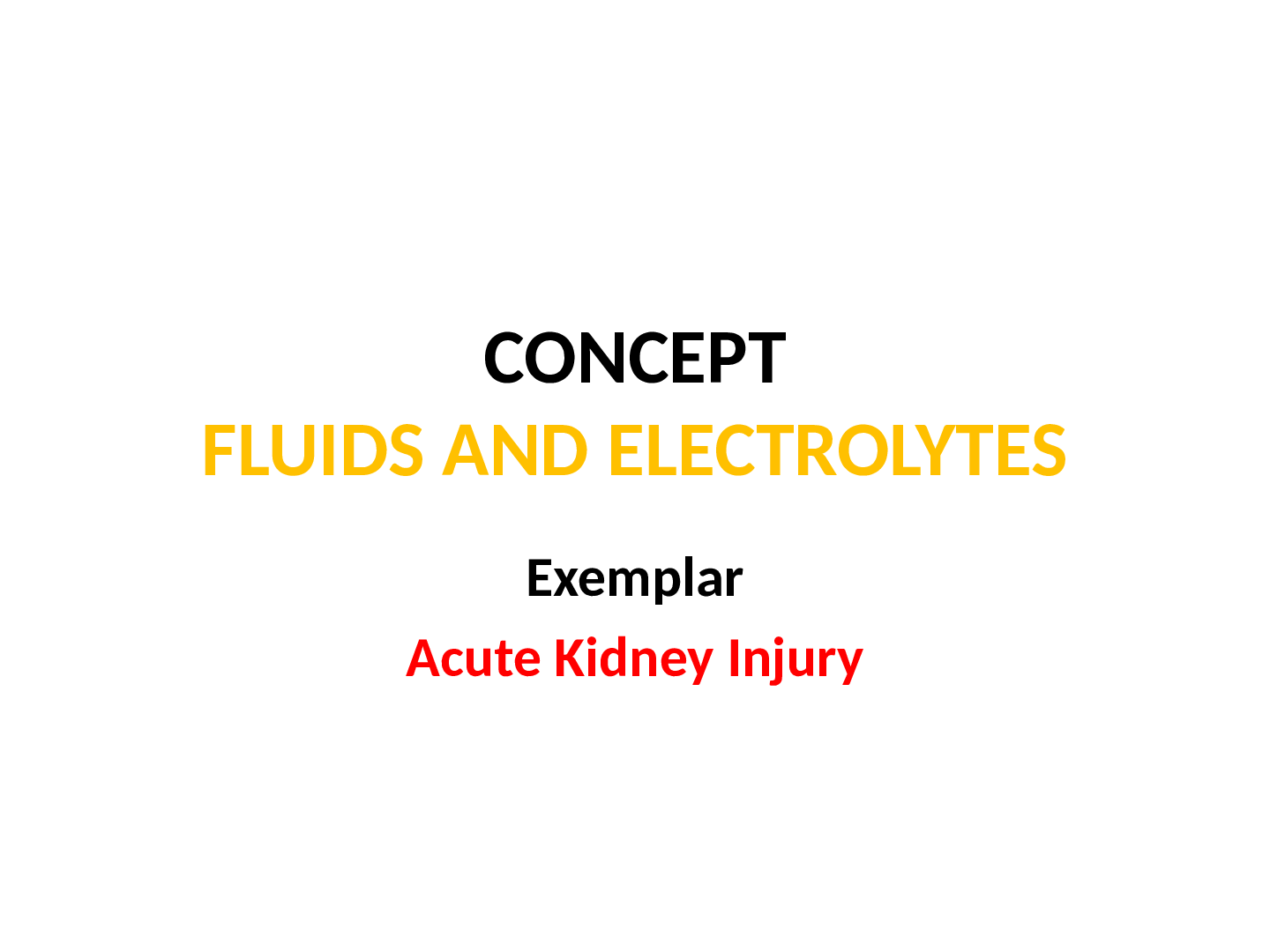
Buy this document to get the full access instantly
Instant Download Access after purchase
Add to cartInstant download
Reviews( 0 )
Document information
Connected school, study & course
About the document
Uploaded On
Aug 27, 2022
Number of pages
28
Written in
Additional information
This document has been written for:
Uploaded
Aug 27, 2022
Downloads
0
Views
29

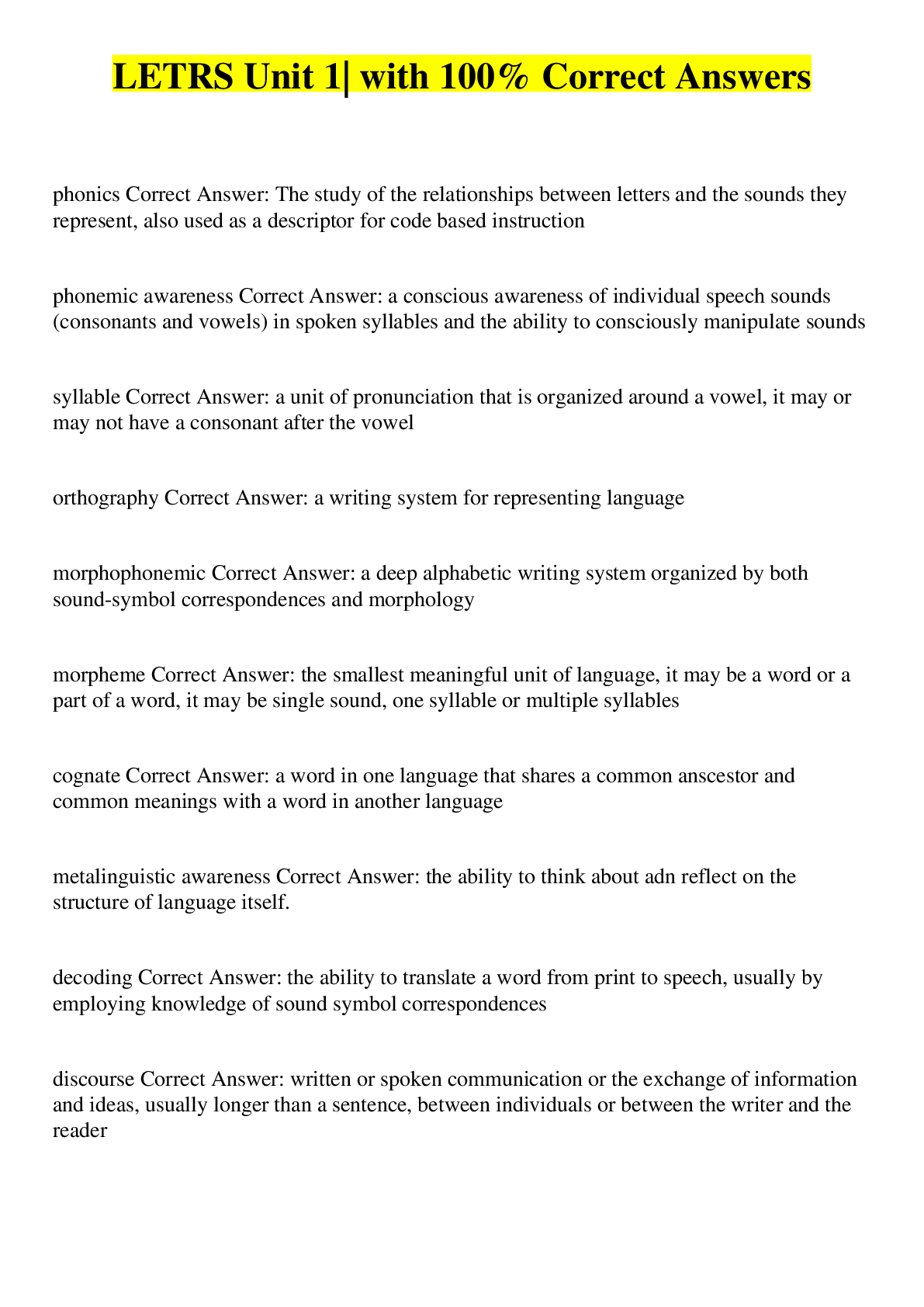
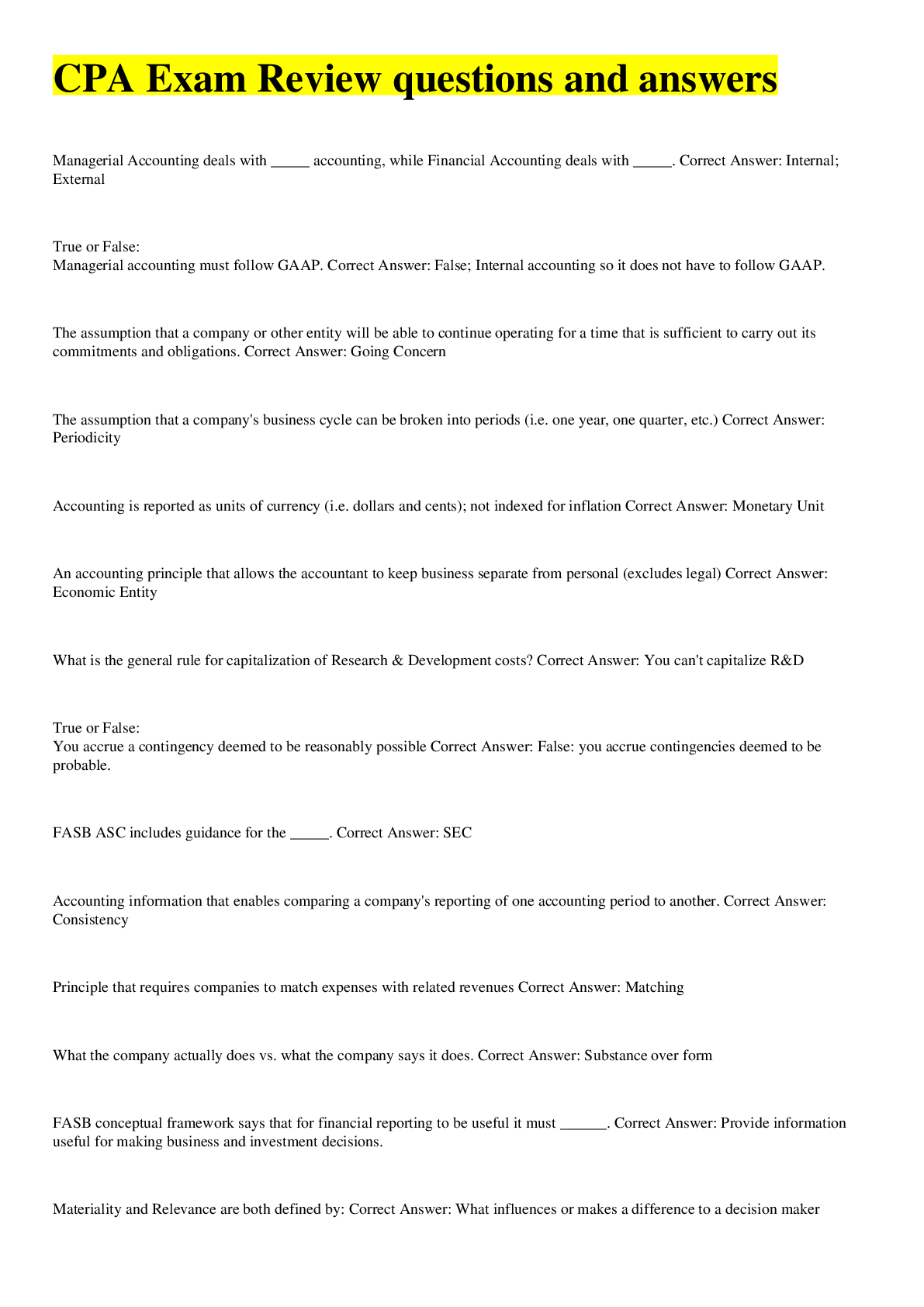
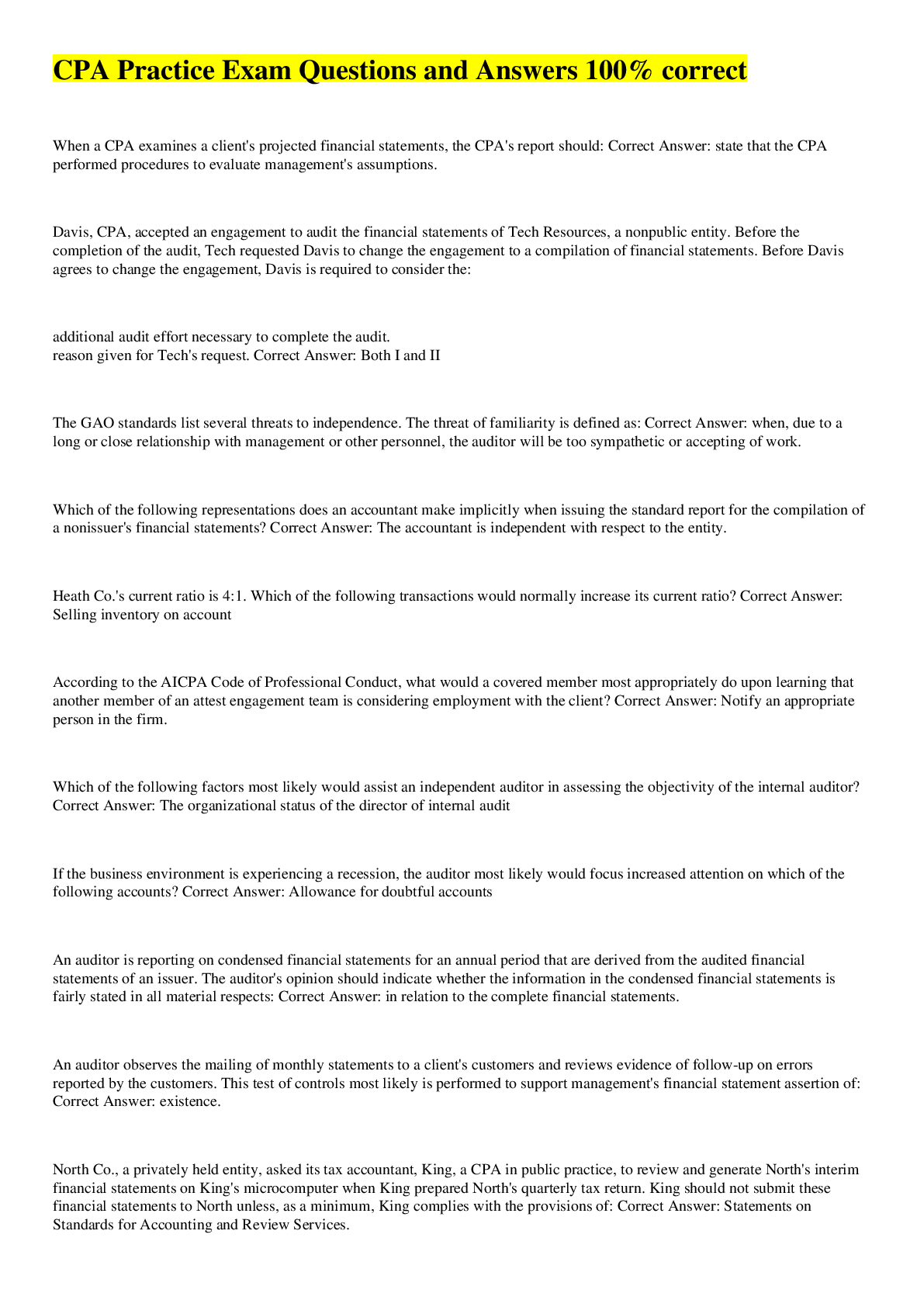
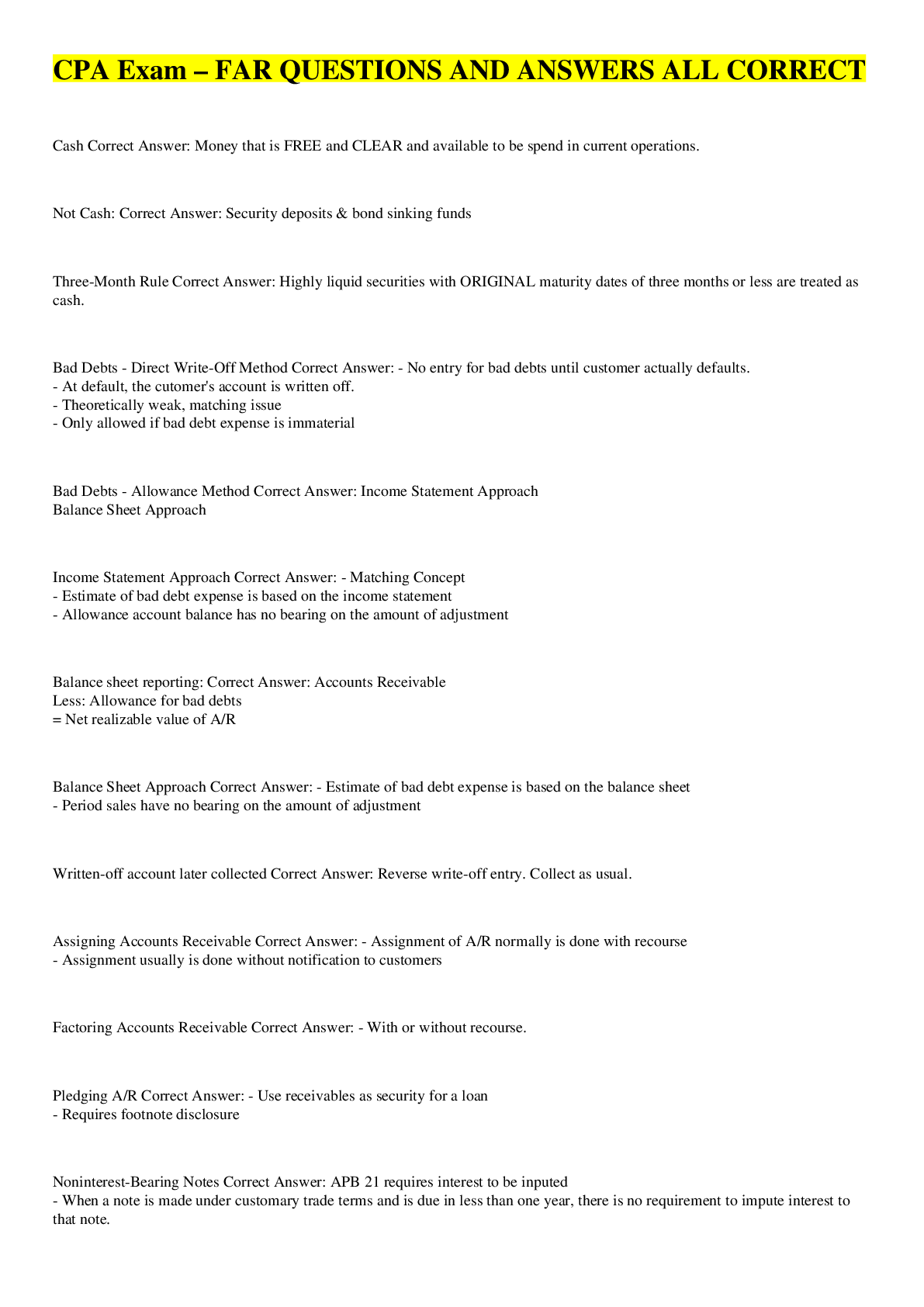
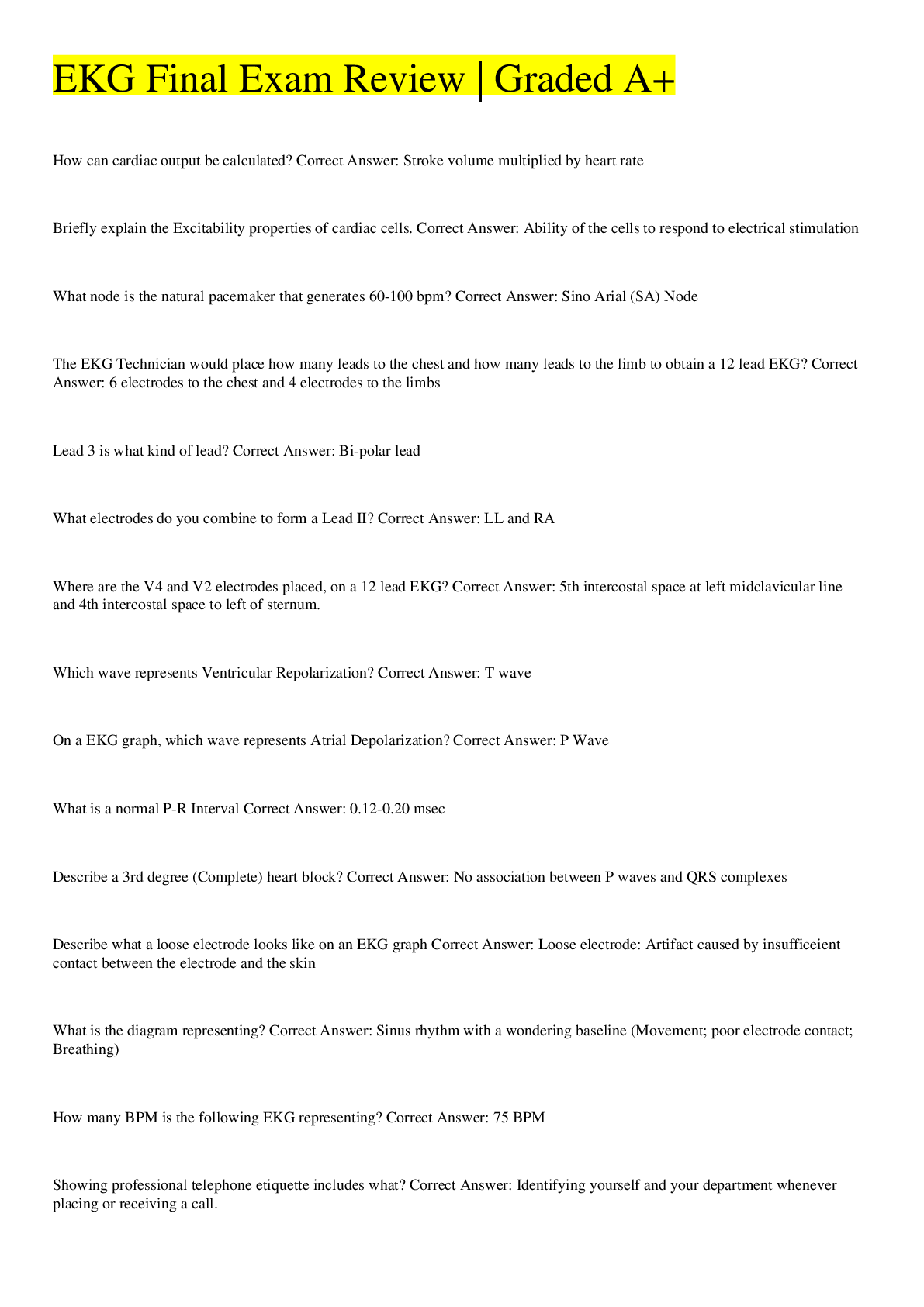
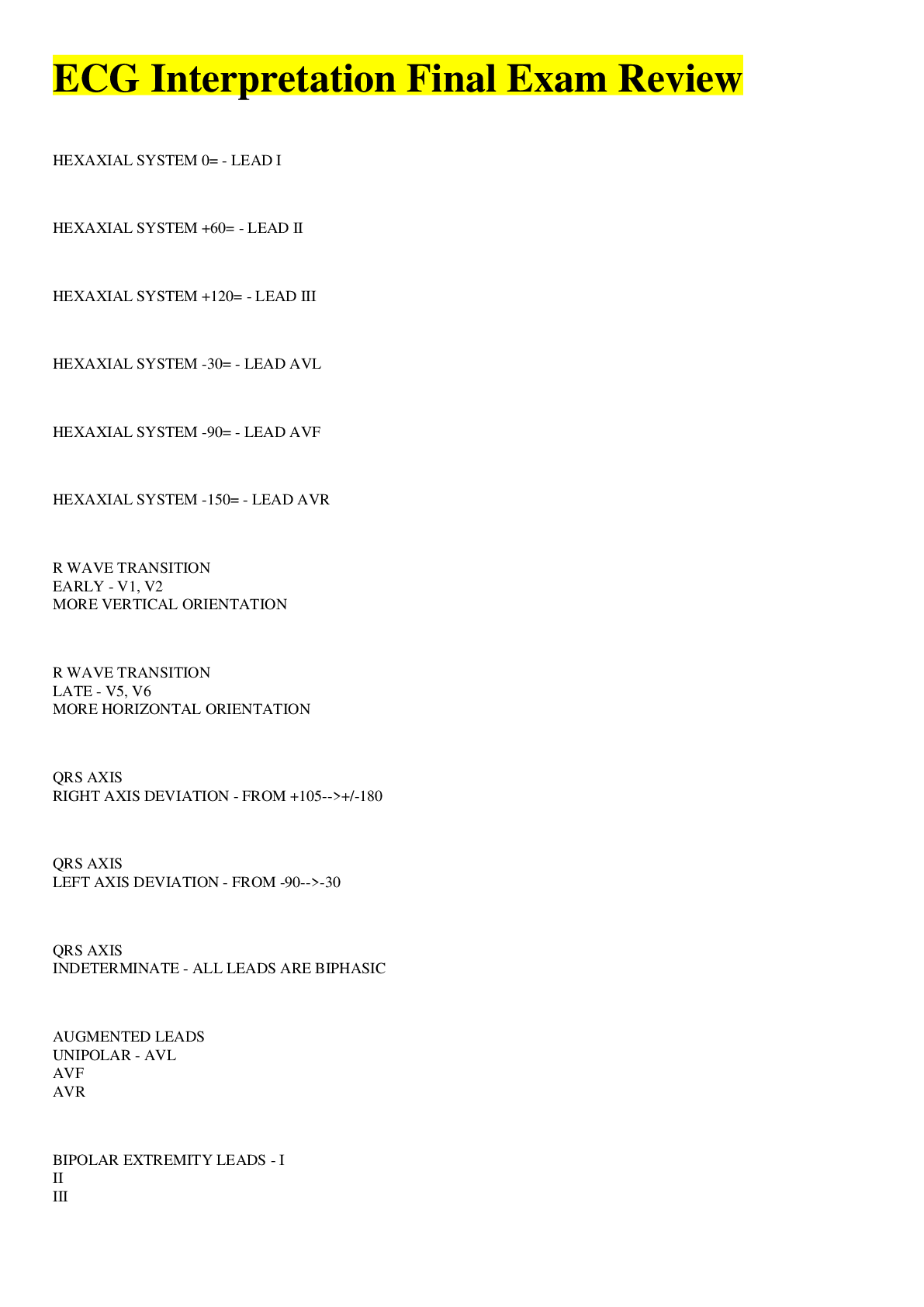
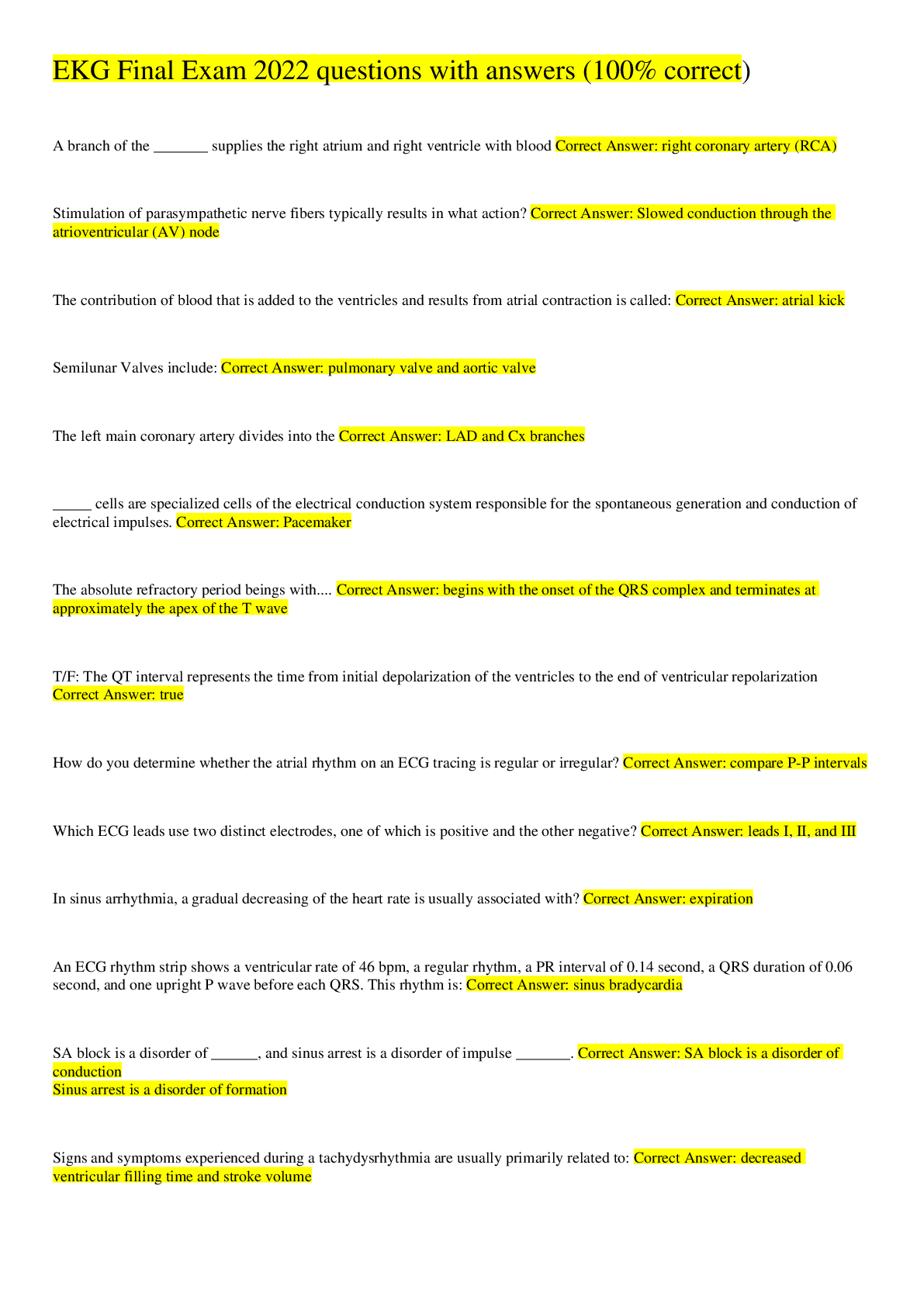
.png)
